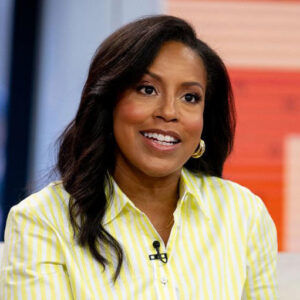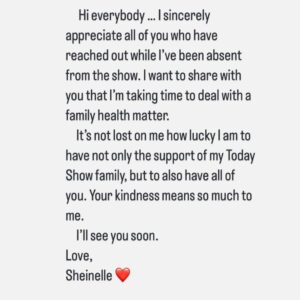Internet Rages as Elon Musk’s Son X Brutally Mocked by The View’s Whoopi Goldberg, Joy Behar; ‘I Did Not Name the Child’

Elon Musk’s son, affectionately referred to as “X,” found himself at the center of a media storm after his name became the subject of ridicule on the popular daytime talk show “The View.” Co-hosts Whoopi Goldberg and Joy Behar made light of the child’s unique name during a segment discussing his appearance at a recent White House event, causing a wave of backlash across social media platforms. This incident highlights not only the intense public scrutiny associated with celebrity life but also raises questions about the boundaries of humor when it comes to young children.
The Controversial Remarks on “The View”

During a segment on “The View,” Whoopi Goldberg made a pointed remark in reference to Musk’s son, “I did not name the child,” eliciting laughter from the studio audience. This comment was part of a broader discussion where both Goldberg and Behar took jabs at the unconventional name of Musk and Grimes’ child, X Æ A-Xii. Behar added her own critiques, even playfully suggesting that the child’s nickname could be “little Instagram,” a clear jab aimed at Musk’s involvement with the social media platform X (previously known as Twitter).
The jokes seemed to strike a nerve with viewers, many of whom took to social media to express their outrage. Critics described the comments as “cruel” and “unjustifiable,” especially when aimed at a child. Users lambasted Goldberg and Behar, referring to their statements as “trash” and characterized them as mean-spirited. The backlash underscored a growing sensitivity about the treatment of children, particularly those of public figures, in the media spotlight.
Grimes Speaks Out on Social Media

In light of the controversy, Grimes, the mother of X and a well-known Canadian artist, took to her social media platforms to address the mockery directed at her son. She expressed her concerns regarding the public’s fixation on children of celebrities, stating that X should not have been thrust into the public eye during such a significant occasion. Grimes thanked fans and followers who alerted her to her son’s attendance at the White House event, affirming her relief that X had behaved well despite the surrounding drama.
This incident raises significant discussions about the responsibilities of media personalities and public figures in representing children. Grimes’ comments reflect a poignant sentiment—should children, particularly those not fully understanding the implications of their fame, be part of the public narrative? Is it right for television personalities to use them as fodder for humor?
Public Discussion and Celebrity Culture

The situation surrounding Elon Musk’s son X reflects ongoing public discourse regarding celebrity culture and the treatment of children within that realm. As social media platforms continue to amplify individual voices, the reactions to Goldberg and Behar’s comments illustrate a growing concern about empathy and respect toward children of famous parents. The backlash against their remarks indicates that audiences are increasingly unwilling to tolerate perceived cruelty, especially when it targets those who cannot defend themselves.
Moreover, this incident has sparked a debate about the role of entertainment media in discussing personal and sensitive topics. Many feel that co-hosts like Goldberg and Behar, as influential public figures, have a responsibility to navigate these conversations with care and a sense of ethical responsibility. Public sentiment appears to be shifting towards a call for compassion and understanding, especially regarding children.
As discussions about this incident continue, it raises the question of how media representations of minors should evolve. Should there be stricter guidelines in place to prevent public figures from mocking or demeaning children? This remains an area that could benefit from further exploration in the coming months as society re-evaluates its views on what constitutes acceptable discourse in entertainment settings.
In conclusion, as we witness the fallout from this incident, it’s essential to encourage respectful dialogue surrounding children’s roles in the media, particularly when it involves public figures. Perhaps it’s an opportunity for us to reflect on our own values and the kind of content we support. If you’re interested in staying updated on this evolving story and broader discussions on media ethics, make sure to follow for more insights and analyses!







